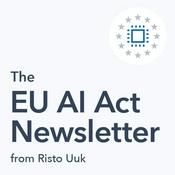At Davos, EU tech chief Henna Virkkunen defended Europe's AI rulebook arguing that a single EU law is better than a hundred American ones..
Legislative Process
Commission misses high-risk AI guidelines deadline: Euractiv's Maximilian Henning reported that the European Commission will publish draft guidelines later this month to help developers identify high-risk AI systems under the EU AI rules, having missed the 2 February 2026 deadline. Classifying AI systems is essential for companies, as high-risk AI systems face significantly stricter requirements, including additional compliance documentation. The Act relies on the Commission guidance on classification, with a comprehensive list of practical examples. The Commission gathered input last summer and received feedback via the AI Board, a group of national experts. A Commission spokesperson explained that the delay resulted from integrating substantial feedback received over the past month whilst following internal procedures, adding that the priority remains publishing draft guidelines for final stakeholder consultation in February before official adoption. Renew lawmaker Michael McNamara, co-chair of a parliamentary group overseeing the enforcement of AI rules, called the delay “entirely unacceptable”, stating that it undermines the AI Office's credibility. However, he emphasised that adequately staffing the Office to fulfil its responsibilities was [...]
---
Outline:
(00:37) Legislative Process
(02:00) Analyses
(08:05) Discussion about this post
(08:09) Ready for more?
---
First published:
February 3rd, 2026
Source:
https://artificialintelligenceact.substack.com/p/the-eu-ai-act-newsletter-95-one-law
---
Narrated by TYPE III AUDIO.
---
Images from the article:
Apple Podcasts and Spotify do not show images in the episode description. Try Pocket Casts, or another podcast app.



